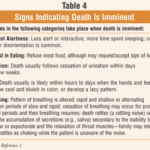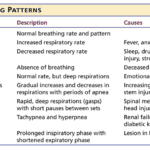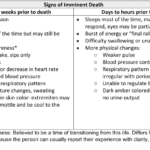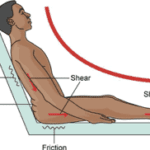The Hospice Admission Nurse

This article delves into hospice care with Andrew Viozzi, an adept hospice admission registered nurse. Andrew brings valuable insights into the hospice admission process and the broader spectrum of hospice care. Although Andrew's current position revolves around admissions, his extensive experience encompasses case management, preceptorship, mentorship, and the guidance of new hospice nurses. In this article, we dispel misconceptions, highlight the advantages of hospice care, outline the admission procedure, and emphasize the pivotal role of hospice in end-of-life care.
Eye-Opening Lessons on Trusting Nursing Facilities: Advocating for Comfort in End-of-Life Care

As an experienced hospice visiting registered nurse, today offered me profound insights from two interconnected perspectives. The first highlights the blind trust we often place in facility nurses and doctors when caring for our loved ones. The second involves the challenges I encountered while advocating for proper end-of-life care for a patient with Alzheimer's.
The Unsung Heroes of Hospice Care: Celebrating the Vital Role of Certified Nursing Assistants (CNAs)

In the realm of hospice care, compassion and comfort take precedence. A team of skilled professionals comes together to offer comprehensive support to patients, their families, and caregivers. Among these essential contributors, Certified Nursing Assistants (CNAs) stand out as unsung heroes, bringing immeasurable value to the field of hospice care. This article delves into the distinctive role CNAs play in hospice, their frequent and meaningful interactions, and their leadership within the hospice team.
The Actively Dying Phase of The Dying Process

For a non-healthcare professional who has never witnessed death before, it can be unsettling to be present with someone who is nearing the end of their life. However, there are certain signs and observations that you can make using your senses that may indicate that the person you are with may pass away within seconds, minutes, or hours. Understanding these signs can help you provide support and comfort to the individual and their loved ones during this grim time.
Breathing Patterns Before End of Life: Critical Clues for the Last Hours!

Understanding the final breath: This article explores the critical breathing patterns observed in the last hours of life, offering insights for caregivers and family members to prepare for the end-of-life journey.
The Transitioning Phase of The Dying Process

Losing a loved one is an incredibly challenging and emotional experience. If you find yourself in the presence of someone in the transitioning phase of the dying process, knowing what signs to look for can be helpful. Although every individual's experience may vary, some common observations may indicate someone is in the transitioning phase. Here's a guide to help you recognize these signs and provide support during this grim time.
Preventing Friction and Shear Injuries in Elderly Care: A Guide for Non-Health Professionals

Taking care of an elderly fragile person at home can be both rewarding and challenging. One crucial aspect of caregiving is preventing friction and shear injuries, which can be painful and detrimental to the person's well-being. In this article, we'll explore what friction and shear injuries are, how they can be avoided, and some practical tips to ensure your loved one's safety and comfort.
The Power of Empathy in Hospice Care

It's common in nursing to be told by others that you shouldn't be a nurse, and some may even call you a "fake nurse" if you don't meet their standards of what they think is required to be a nurse. The first time I was told I could not be a nurse was by an elderly woman who believed only women could be nurses.
Is Dying Painful?

Dying doesn’t always hurt. The amount and type of pain there is at the end of life can differ. The specific diagnosis and cause of pain are factors.
Understanding Hospice Care: Is it Too Early to Start Hospice?

Is it Too Early to Start Hospice?
It's crucial to remember that hospice care is about improving the quality of life for the patient and their family, regardless of the time left. Hospice care can be initiated when the patient's condition is declining and they require comfort-focused care rather than life-prolonging treatments. Starting hospice care early can provide ample time for the patient and their family to benefit from the support and services offered.
If you're unsure when to consider hospice care, consult the patient's primary physician or a hospice care provider. They can guide you through the process and help you make an informed decision based on the patient's needs and circumstances.
Understanding the Role of IV Fluids at the End of Life

Explore the delicate balance of IV fluid use at life’s end. This article discusses the hospice approach, potential risks, and prioritizing comfort over invasive measures. A must-read for families facing tough decisions in palliative care.
